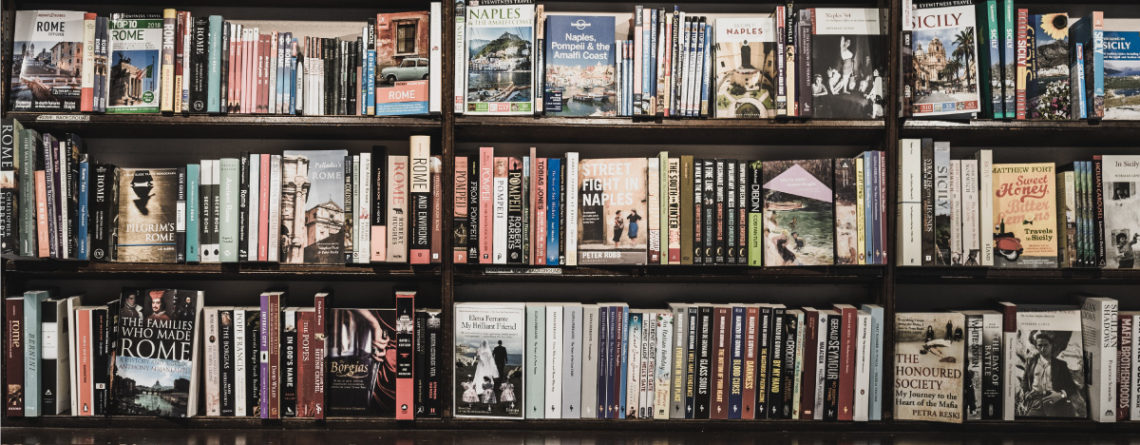The publishing sector, at the edge of a fundamental change
This is the first installment of a four-part publication that will introduce the changes in one of the most important sectors of the culture industry.
The European publishing sector has been experiencing some major changes lately that have consequences over the entire process of book publishing. Book reading is competing nowadays with an overwhelming entertainment offer that is valued for its convenience, availability and the fact it can be simultaneously experienced with others. Furthermore, the same digital technologies that enabled the surge of this competition, are making possible new business models for publishers. Amazon, like other self-publishing and crow-publishing companies, is showing that immersion of the industry in the Digital era is inevitable, and it is necessary to build resilience in times of crisis.
“And keep your eyes wide. The chance won’t come again”, said the Literature Nobel Prize Bob Dylan when singing The Times, they are A-Changing back in 1964. At that time, the folk singer was addressing his words to everybody in fact, although the song became an anthem for the defense of civil rights. It seems interesting to note that the poet only wanted us to be aware of the world’s reality by observing it.
For some time now, the publishing industry has been living a transitional moment resembling the beginnings of the internet. Internet was the place to be, but no one knew how not even the ones who created it. Everyone wanted to be online, and everyone tried. At that time, some were even afraid that paper would disappear; however, newspapers, magazines, books, are still published. The inevitable changes were not sufficiently considered. And a generation later, we still do not really understand their potential.
Nowadays, there is a wave of new ways to publish books that were not anticipated: self-publishing platforms are flourishing all around the world. Furthermore, hybrid profiles of readers-writers are also appearing, known as prosumers. Besides, business rules also seem to be changing. This is why it is fundamental to explore how the pandemic has shaped the foundations of a necessary change.
“And keep your eyes wide. The chance won’t come again”, said the Literature Nobel Prize Bob Dylan when singing The Times, they are A-Changing back in 1964.
Although bookshops were closed, book sales never stopped
The past year’s course of events has been deeply disrupting for the world. However, it allowed the publishing sector to target the already existing issues that were amplified by the crisis. Publishers could have never anticipated the temporary closure of hundreds and hundreds of libraries and bookshops due to the first lockdown, and then the measures adopted by each country in the world.
“At the peak of the crisis, book sales were down 80% in Portugal and Spain, 85% in Italy and 90% in Slovenia. Similar losses were experienced all over Europe, with online sales growing everywhere but not enough to offset such losses.” (Consequences of the COVID-19 crisis on the book market, FEP, 2020).
Sales dropped dramatically, book fairs were cancelled, new titles were postponed or cancelled, writers could not promote their books, etc. Some bookshops reinvented themselves to reach their readers by taking books to their houses. It is surprising to discover that for instance in France, where bookshops closed for three months, the revenue has only diminished by 3.3% compared to 2019, according to the French Bookshop Union. This limited crisis is due to the massive comeback of the readers after two lockdowns. There is hope.
“The great pause”: a time for awareness
People have not stopped reading during this “great pause”, as some romantics dared to call it: “33% of people worldwide read more books / listened to more audiobooks while at home during the crisis” (FEP, 2020).
Other forms of “reading” books are possible, as is suggested by FEP, and people were encouraged to read and approach more traditional literary works. Audiobooks are helping to shape great changes in the sector.
E-books sales have also increased during the pandemic: “they were up 52% in March and 180% in April in Flanders; many online platforms doubled or tripled their sales in France in early April; in the year up to mid-April, online sales in Italy for the first time ever overtook in-store sales, reaching a 47% share, and by June they had become 40% of total book sales in Romania.” (Aldus up, Turin, 2020)
Besides the fact that digitalization is growing in the industry, some old titles have even been on the top of the sales for a brief period of time, such as The Plague from French author Albert Camus. All around the world, this novel has popped up in the top 10 of book sales.
Clearly, during the lockdown people have read more. Surprisingly they have also written more. In France, publishers have been submerged by a wave of manuscripts. Needless to say, not all French people have become great writers overnight. As Harmattan CEO, Xavier Pryan, said regarding the quality of the manuscripts: “We don’t make ourselves writers. The manuscripts received were of exceedingly average quality”.
Amazon: the wolf that blows on the publishing houses since the nineties
Before the pandemic, the number one competitor to publishing houses was Amazon – and it still is! The biggest retailer in the world started back in 1995 by selling online books. At the time, it was not really taken seriously.
In 1999, Jeff Bezos said: “When we first started selling books four years ago, everybody said, ‘Look, you’re just computer guys, and you don’t know anything about selling books.’ And that was true,”. Almost twenty years after, Amazon is the largest bookseller in the USA with 807 million books sold.
That does not mean Bezos understands the publishing sector. Rather, he understands the consumers. By adopting a customer-centric approach in the nineties, the company set foot in the future of consumption. While Amazon collects massive amounts of data, many publishers, even the bigger ones, do not know yet what their readers really want to read.
Amazon is progressively losing its lone wolf status, as other players as well started to see business opportunities in the sector where digitalization, and digitization are slow to take off.
E-Books, audiobooks, self-publishing, publishing platforms: the publishing industry needs to face many challenges that concern its entire value chain from the creation of the book itself to its sale in the market.
Are we living the next step in the evolution of books?
Article by Marjorie Grassler – Communications Executive at Mobile World Capital Barcelona












